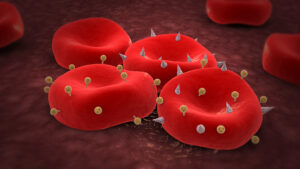Partial D phenotypes (with altered D epitopes) and weak D phenotypes (with a reduced number of D antigens present on RBCs) are difficult to distinguish based on serology alone. Thus, genotyping the RHD locus is recommended to limit the risk of alloimmunization and to avoid unnecessary use of RhIG and D- blood. Patients with weak D types 1, 2, and 3 can safely receive D+ blood and do not need RhIG prophylaxis whereas patients with partial D genotypes need to be treated as D negative. In order to determine the impact of RHD genotyping on D- blood supply and RhIG use, researchers genotyped 57 samples from Denmark and 353 samples from the U.S. with weak or discrepant D serologic results. Genotyping results from samples collected from the relatively homogeneous Denmark population (91.4% Danish origin) revealed that 90% (51/57) had weak D types 1, 2 or 3 and could safely be treated as D+. In Denmark, two other samples had other weak D alleles, two partial D alleles and two new alleles were identified. In the ethnically diverse samples collected in the U.S. (53% White, 30% African American, 5% Hispanic, 2% Asian, and 5% other), only 44% (155/353) had weak D types 1, 2, and 3 alleles and 4% (13/353) had uncommon weak D alleles that could safely be treated as D+. The remaining samples had other alleles, including 62 with the weak 4.0 allele, 107 with partial D, 9 with no RHD, and 7 with new alleles that could potentially benefit from being treated as D-negative. Genotyping inconclusive D serology results may help conserve D negative blood.
Reference:

